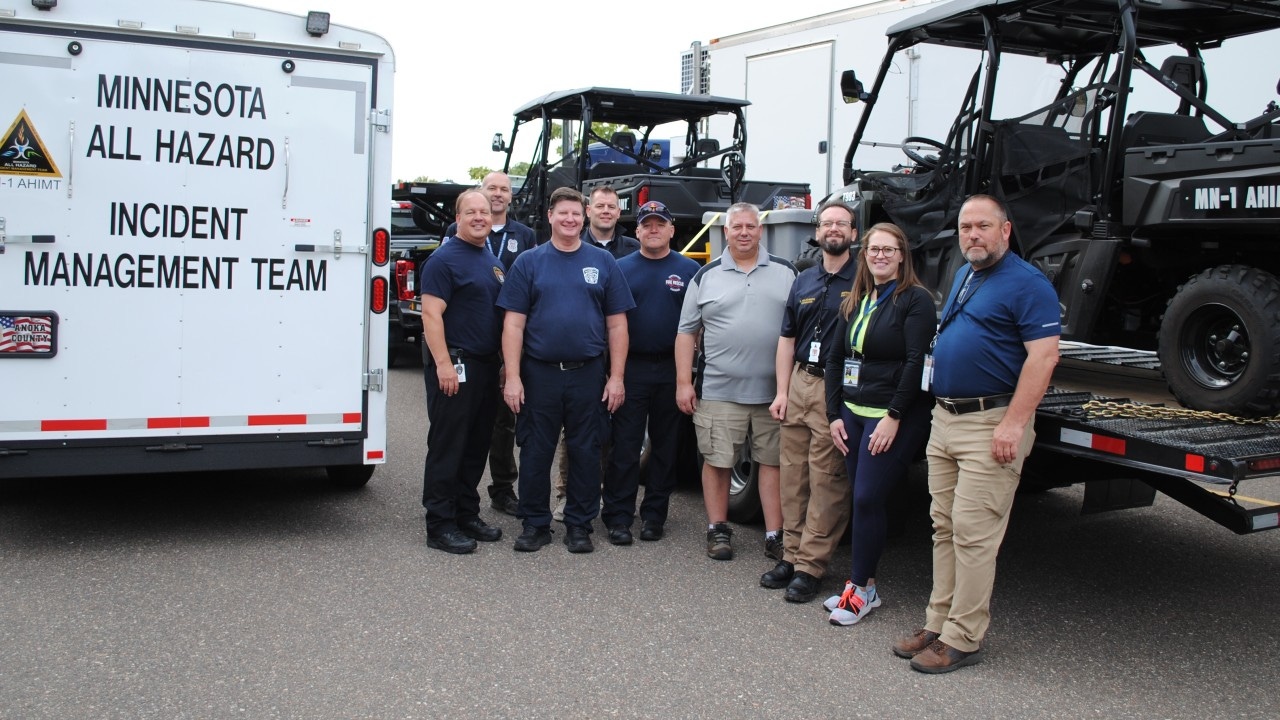Minnesota hazards management team deployed to Florida

A picture from the governor's office shows the Minnesota All Hazards Incident Management Team that is heading to Florida to help communities recovering from Hurricane Ian.
A Minnesota hazards incident management team has been deployed to Florida to help communities damaged by Hurricane Ian.
Friday, Gov. Tim Walz’s office said eight Minnesotans on the team will help local Florida officials during a 12-day deployment.
The team members are highly trained to serve in a variety of roles, and in Florida will:
- Support field or emergency operations center operations.
- Support and coordinate response and recovery efforts in affected counties.
- Provide a command-and-control infrastructure to manage the operational, logistical, informational, planning, fiscal, community, and safety issues.
“Minnesotans have always stepped up to help out their neighbors in times of need,” Walz said in a statement. “Hurricane Ian has devastated homes, businesses, and communities, and Minnesota is committed to helping the affected communities in any way possible. I am grateful for Minnesota’s first responders who have answered the call to provide aid and keep people safe. My heart is with our neighbors in Florida as they begin to recover from Hurricane Ian.”
“When disasters strike, Minnesotans don’t hesitate to step up to the plate and help others on their worst days. It doesn’t matter if we’re helping the person who lives next door or someone we have never met 3,000 miles away,” Minnesota Department of Public Safety Homeland Security and Emergency Management Director Joe Kelly added. “Traveling for days and spending time away from their families in a disaster area will not be easy for this team — but it’s the right thing to do. And we know the people of Florida would do the same for us.”
RELATED: Ian makes landfall again, this time in South Carolina
The governor’s office says it’s the fourth time this year the state has responded to a request through the Emergency Management Assistance Compact — a mutual aid agreement between all 50 states.
A revived Hurricane Ian made landfall in South Carolina on Friday. In Florida, at least nine people were confirmed dead and more than 2 million remained without power.